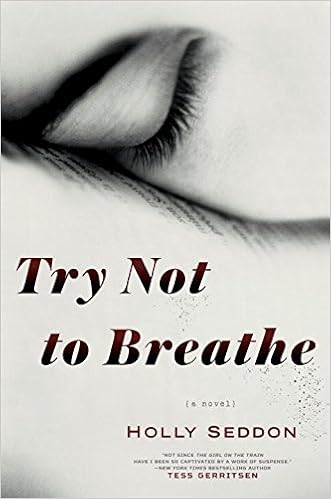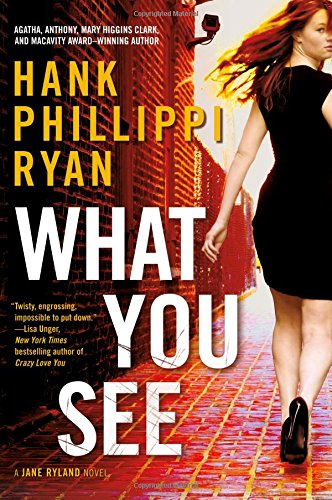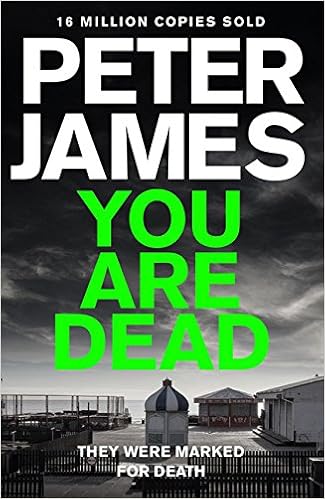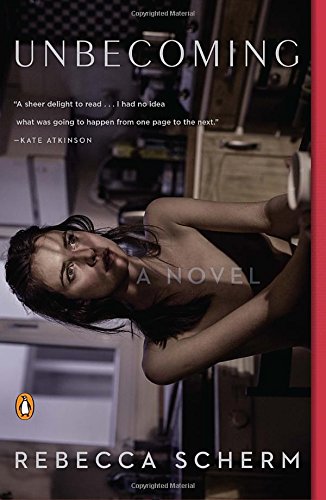 West is part espionage thriller, part social realism (circa late ‘70s, early ‘80s) and probably partly autobiographical as well: as a young girl, Julia Franck crossed from East to West Germany with her family. The milieu of a reception centre in West Berlin has a banal horror to it, something akin to the quality of a (childhood) nightmare. Families share rooms with strangers and sleep in bunk beds.
West is part espionage thriller, part social realism (circa late ‘70s, early ‘80s) and probably partly autobiographical as well: as a young girl, Julia Franck crossed from East to West Germany with her family. The milieu of a reception centre in West Berlin has a banal horror to it, something akin to the quality of a (childhood) nightmare. Families share rooms with strangers and sleep in bunk beds.
Category: Thriller Reviews
A review of Try Not to Breathe by Holly Seddon
 It worked for Gone Girl. Not to the same degree, it works for Try Not To Breathe. That’s what Seddon brings to fruition more than anything. It’s the same way her stretching into sci-fi with her short story “Graduate Schemes,” published in the dystopian anthology Broken Worlds, leans closer to squabbling than the high stakes of a truly broken world.
It worked for Gone Girl. Not to the same degree, it works for Try Not To Breathe. That’s what Seddon brings to fruition more than anything. It’s the same way her stretching into sci-fi with her short story “Graduate Schemes,” published in the dystopian anthology Broken Worlds, leans closer to squabbling than the high stakes of a truly broken world.
A review of What You See by Hank Phillipi Ryan
 While Ryan hasn’t convinced me that there is no suspense in love, no love in suspense, she’s shown she’s less a muckraker than her credentials makes her out to be in her stories focused on political scandal, police corruption, and institutions which create the circumstances for felonious activities.
While Ryan hasn’t convinced me that there is no suspense in love, no love in suspense, she’s shown she’s less a muckraker than her credentials makes her out to be in her stories focused on political scandal, police corruption, and institutions which create the circumstances for felonious activities.
A review of You Are Dead by Peter James
 I don’t read thrillers regularly, but You Are Dead caught and kept my attention throughout. James kept a tight rein on the plot, and there was no obvious suspect. He added a twist to Logan and Jamie’s engagement that I didn’t expect, although I would have liked more details on that relationship.
I don’t read thrillers regularly, but You Are Dead caught and kept my attention throughout. James kept a tight rein on the plot, and there was no obvious suspect. He added a twist to Logan and Jamie’s engagement that I didn’t expect, although I would have liked more details on that relationship.
A review of Unbecoming by Rebecca Scherm
 Rebecca Scherm’s Unbecoming is a heist tale, a bildungsroman, a love story, and above all, a compelling psychological study of a likeable young woman with strong anti-social tendencies. As the novel progresses, Grace, the protagonist, not only behaves in “unbecoming” ways, but “unbecomes” the promising girl she once was. She grows in independence, strength and daring, but it is impossible to approve of her.
Rebecca Scherm’s Unbecoming is a heist tale, a bildungsroman, a love story, and above all, a compelling psychological study of a likeable young woman with strong anti-social tendencies. As the novel progresses, Grace, the protagonist, not only behaves in “unbecoming” ways, but “unbecomes” the promising girl she once was. She grows in independence, strength and daring, but it is impossible to approve of her.
A Review of Like Family by Paolo Giordano
 For those who study fiction, form, or genre, Like Family should be required reading. It begins as a tribute but morphs into a eulogy for love itself, a stark realization that passionate and all-consuming love is far beyond the narrator, maybe beyond modernity. The story invites such an epic statement, but it also keeps us in check.
For those who study fiction, form, or genre, Like Family should be required reading. It begins as a tribute but morphs into a eulogy for love itself, a stark realization that passionate and all-consuming love is far beyond the narrator, maybe beyond modernity. The story invites such an epic statement, but it also keeps us in check.
A review of The Boy Who Killed Demons by Dave Zeltserman
 It’s an absorbing novel, and we’re quickly caught up in Henry’s concerns and anxieties. Zeltserman convincingly captures the grumpy, grouchy voice of an adolescent boy – spoilt yet with a core integrity.
It’s an absorbing novel, and we’re quickly caught up in Henry’s concerns and anxieties. Zeltserman convincingly captures the grumpy, grouchy voice of an adolescent boy – spoilt yet with a core integrity.
A review of Invisible Streets by Toby Ball
 I very much enjoyed Toby Ball’s novel, the way his snappy prose propelled the story forward, making everything both more convoluted and clearer at once. He conjured up a vital, bustling sense of place.
I very much enjoyed Toby Ball’s novel, the way his snappy prose propelled the story forward, making everything both more convoluted and clearer at once. He conjured up a vital, bustling sense of place.
A review of The Hydra by Graham Stull
 Stull creates a character memorable and believable enough to draw the reader in as the complex web surrounding Matterosi’s backstory, narrated as a confessional tape, mingles with the unfolding events through the trial. The plot is super fast paced, with enough cliffhangers, a touch of romance, and plenty of excellent and very well informed science (think Atwood in Oryx and Crake) to keep the pages turning faster than you can say “overpopulation.”
Stull creates a character memorable and believable enough to draw the reader in as the complex web surrounding Matterosi’s backstory, narrated as a confessional tape, mingles with the unfolding events through the trial. The plot is super fast paced, with enough cliffhangers, a touch of romance, and plenty of excellent and very well informed science (think Atwood in Oryx and Crake) to keep the pages turning faster than you can say “overpopulation.”
A review of You Have No Power Over Me by Mark Logie
 You Have No Power Over Me is a rather scary little story about a Daniel, a young boy alone in the park, and Lark, an older man who lives on what he can steal. Both Daniel and Lark are misfits – society’s cast-offs and both seem to be living a lonely, tenuous and dangerous existence when Lark finds Daniel.
You Have No Power Over Me is a rather scary little story about a Daniel, a young boy alone in the park, and Lark, an older man who lives on what he can steal. Both Daniel and Lark are misfits – society’s cast-offs and both seem to be living a lonely, tenuous and dangerous existence when Lark finds Daniel.